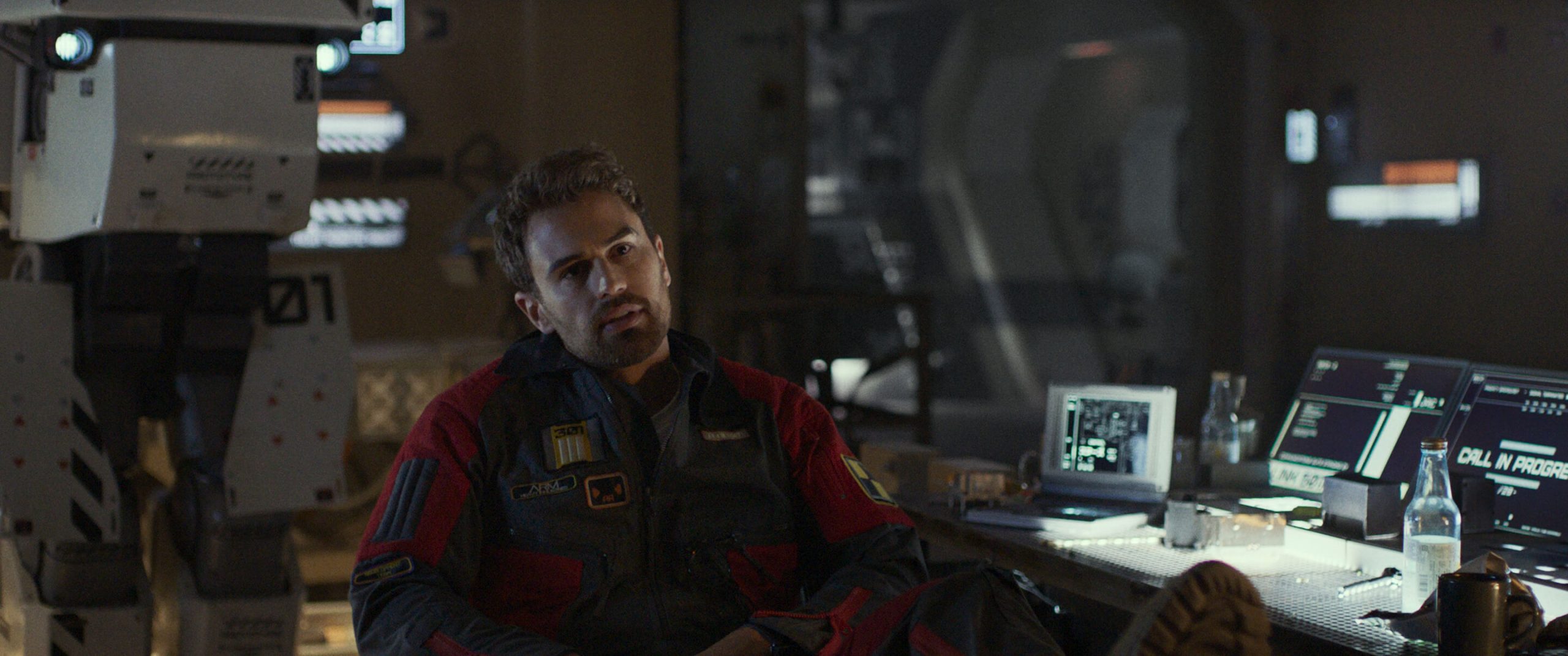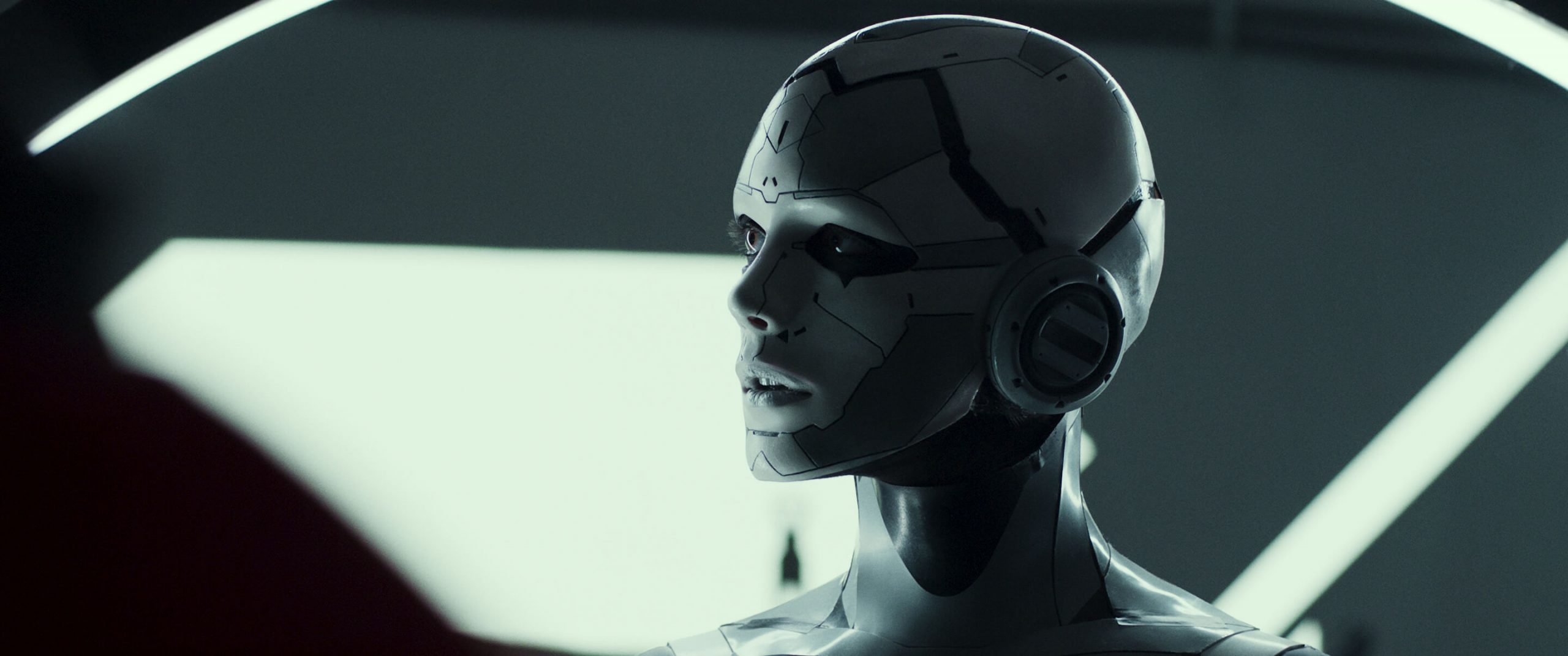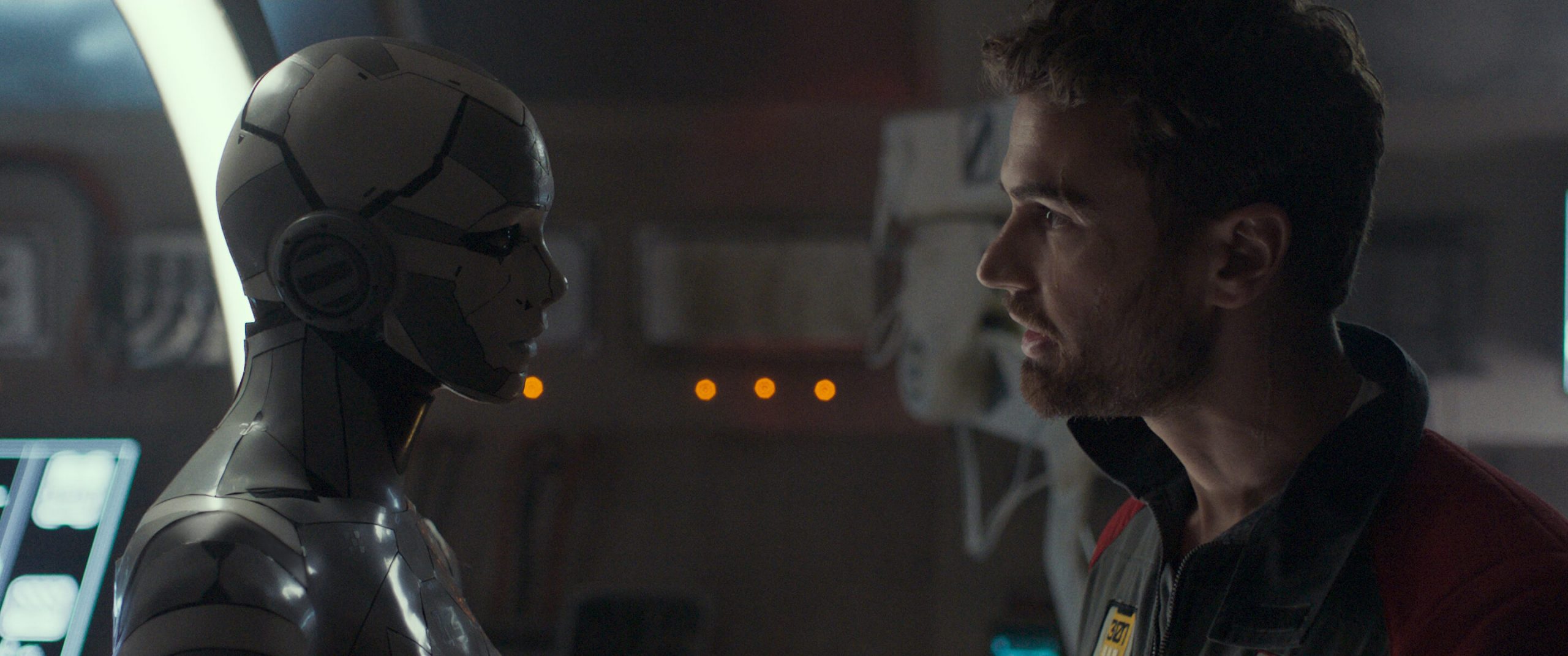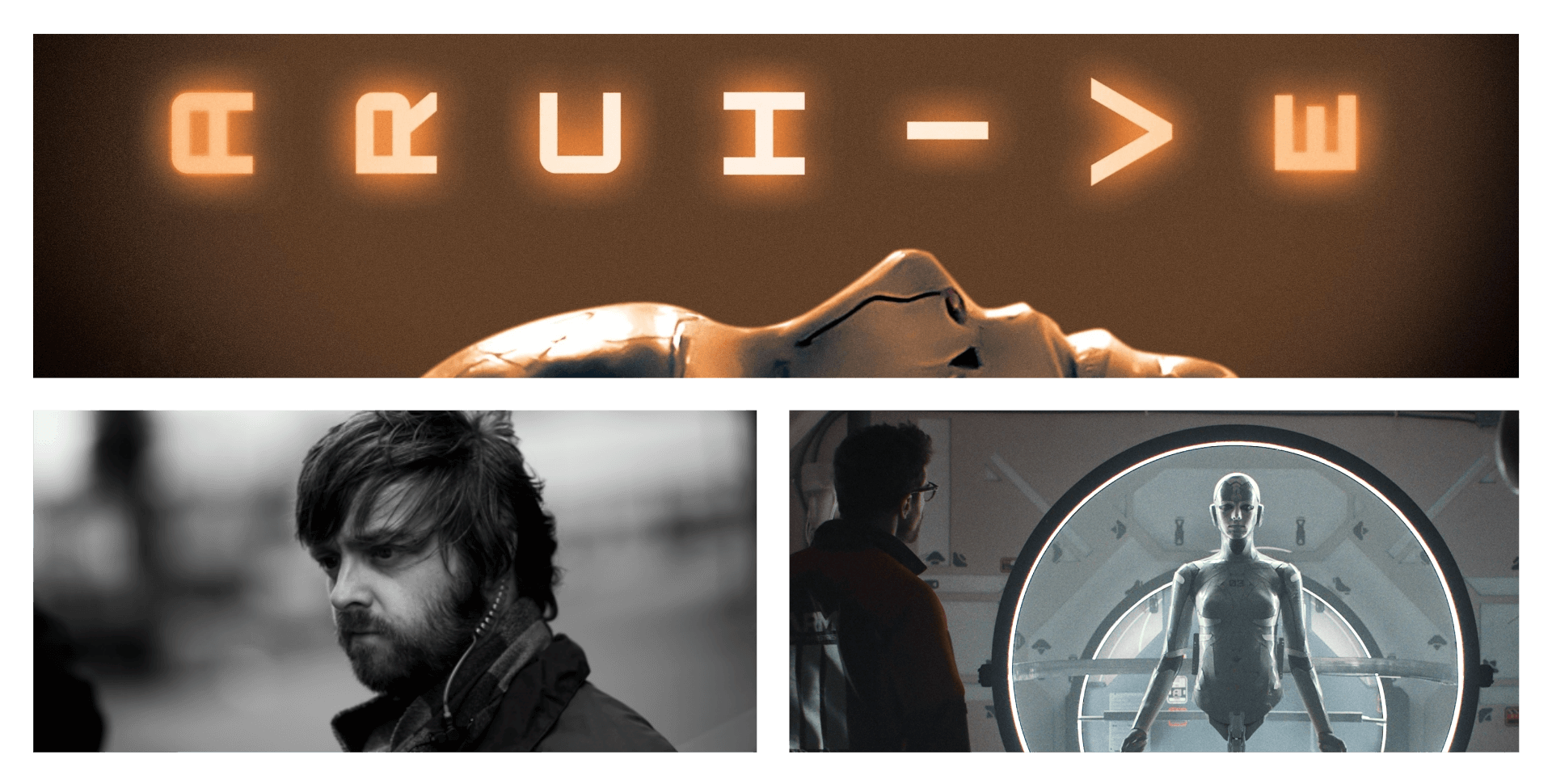Set in the year 2038, Archive follows George Almore (Theo James) as he attempts to covertly create a human-equivalent AI version of his late wife, Jules (Stacy Martin). This time around, his third prototype, J3 is the closest thing to Jules as technologically possible. He must keep her and his other prototypes a secret from everyone, as he prepares to be reunited with his wife once again through J3. Borrowing Tape had the great opportunity to interview writer/director Gavin Rothery (whose concept design and VFX work you've probably seen in Moon) on his directorial feature debut film Archive, which is now available to stream via Virtual Cinema Screenings, On Demand, and Digital.

Photos Courtesy of Vertical Entertainment
What was the inspiration for the science-fiction story/world of Archive? Can you tell us about how you handled the writing process, and where did you begin?
It all came from a rough weekend I had back in 2011. I was spending the weekend tidying up my flat, and both of my PCs died at the same time. When you’re working as a freelance artist, your computer is one of the most important things in your life, so it was a bad day. It was a severe failure too – I had corrupted hard drives and all sorts of problems. I never found out what caused it but eventually managed to recover most of my data from a professional recovery service. But it ruined my weekend and I had to spend the rest of the Sunday cleaning up my flat in a really bad mood. I was feeling down on computers, and I was thinking about why my computers might want to kill themselves. Then I thought about a scientist creating a human-equivalent AI, and as soon as it becomes sentient, it just wants to die. That was the germ of the idea that ended up becoming Archive. The story was pretty quick to figure out, I had it all sorted in a couple of months. But the rest of the film’s journey to screen would take the next nine years.
Can you tell us about the score in Archive, how did you find working together with composer Steven Price (Gravity, Baby Driver, Fury)?
It’s hard to know where to start with this one because, on one hand, it’s a very easy question to answer (it was amazing), but on the other hand also very hard (because it’s difficult to explain exactly how amazing it was).
Steven is one of those rare geniuses that also happens to be a lovely fellow and very easy to get along with. I was incredibly lucky to be able to attract somebody of his caliber, and when he started delivering his musical interpretation of the film it was like he was reading my mind. It’s rare when collaborators soak up the essence of your source material to that magnitude, but it’s fully evident in his work. I couldn’t imagine a more perfect score to Archive. I’m still not sure how he does what he does, but, speaking as a director, he certainly knows how to wrap the most beautiful bow around your film.
What were your favorite and most challenging scenes, being on set and during post-production?
Probably the scenes in George’s workshop where J3 is without legs and attached to the robot arm. I just loved seeing Stacy Martin walking on-set in her early stage J3 makeup. She looked so cool and otherworldly. And when Laurie Rose had done his thing with the lighting, the whole thing came to life so beautifully, and when Theo James stepped in and the pair of them started to engage, it was just wonderful to witness. It was a pretty cool room to be in whilst we were shooting those scenes. Very cold though – it was minus 10C outside and there was no real heating.

How was the process of working with cinematographer Laurie Rose (Kill List, Free Fire) to devise the aesthetic for Archive?
Just fantastic. Laurie is a true artist and things just come together in his hands. I’m amazed at what he managed to do with the little he had to work with on Archive. Our budget was extremely tight and we only had enough equipment to light one part of the set at a time, so whenever we moved we had to take all our lights with us. He created some really complex setups with a lot of dynamic effects (for example the alarm sequences and the transitions in and out of it) and I couldn’t be happier with the results. Really, it was an absolute pleasure working with him and I still can’t quite believe we got him on the film. He’s a magician.
What an incredible ending! Did you always have this conclusion in your mind when writing the screenplay?
Yes – when I’m plotting out a story I tend to work out where it’s going quite early on as a natural part of my thought process. Although, Archive is the first screenplay I’ve written, so I’m still developing my technique.
What were the design decisions for the technology, robots, set, and VFX, and how were they created?
I really wanted Archive to have that “one foot in the present, one foot in the future” sort of vibe because it makes things feel nice and solid to me. Ultimately, everything I did was restricted by our tiny budget, so we had to pick our battles with regard to the production design. I was really leaning into the approach I devised for Moon, so this whole endeavor for me was quite straight forwards as I already had a working template from my previous work. The robots were always going to be actors in costumes as we simply did not have the money to do anything else. And I reasoned that if it worked for Silent Running and Star Wars, then I had a chance at pulling it off if I didn’t try and over-reach or do anything crazy. I’d already had some success with Gerty in Moon, so I felt confident going in that I could expand on that without too much danger. Everything was built in that old-school way of being either plastic boxes (the robots), big panels of wood (the set), or the most uncomplicated VFX solutions I could figure out (such as Stacy Martin simply standing still wearing green trousers as the early version of J3). It was really all about uncomplicating things and keeping the focus on the characters rather than trying to show off with the visuals.

Which films/directors have had the most impact on your filmmaking and for your feature film, Archive, and why?
Stanley Kubrick is the absolute master of mood for me, so I have to mention him. I know it’s rather lofty of me to consider him an influence in any sort of way that people might recognize, but I love his patience and the way he uses it to build a sense of looming dread (particularly in The Shining), and that is something I was trying to channel a little in Archive. Christopher Nolan is a legit genius and the creativity in Inception still blows me away. Although Archive is nowhere near this level of film-making, it’s definitely something I aspire to, so maybe there’s germs of that in there somewhere. Hopefully, there’s a germ!
Best advice for budding filmmakers?
Build on your previous work, make friends, and keep grinding. What works for one person might not be an option for another, but constantly working to build on top of whatever you have already accomplished is something everybody can do. Also, be okay with luck. If you get some luck, take it and smile. There will be other days when you are unlucky, so if the sun happens to shine on you use it and keep grinding. Half of everything is luck. Build on top of any previous success, no matter how small it is. If you keep building on it, it will get bigger. Learn to be patient whilst you grind. And take the luck.
